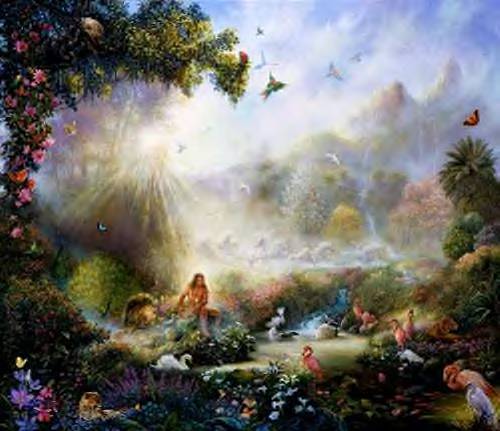The daily headlines from around the globe of unbridled hatred, murder, greed, and abused trust from communal leaders give the impression that our world is unraveling, knot by knot. We, as human beings, may have come quite far in the field of science, but human civilization, it can be argued, has lagged behind in the realm of spiritual and ethical development.
How can it be that we have become so advanced technologically, yet remain cavemen in a quest for ethical fire?
The challenges facing contemporary society are not new. From the moment God invests Adam and Eve with their mandate to rule over the natural world, we learn that humanity’s moral and ethical trajectory is uncertain.
 In Genesis 1:26 “God says: ‘Na’aseh Adam Betzalmaynu Keedmootaynu V’yirdu … Al Ha’aretz,’ “Let’s make man in the divine image ... And humanity (“V’yirdu”) will rule over the earth and all wildlife.” The potential for temptation and internal conflicts of interests are intimated in the directive itself, in the very word indicating the command for leadership, namely “V’yirdu”. Every Hebrew word has a three letter root, yet this fascinating word, “V’yirdu” could be derived from two different sources, either Resh, Daled, Hay, which means to dominate, or Yod, Resh, Daled, which means to go down.
In Genesis 1:26 “God says: ‘Na’aseh Adam Betzalmaynu Keedmootaynu V’yirdu … Al Ha’aretz,’ “Let’s make man in the divine image ... And humanity (“V’yirdu”) will rule over the earth and all wildlife.” The potential for temptation and internal conflicts of interests are intimated in the directive itself, in the very word indicating the command for leadership, namely “V’yirdu”. Every Hebrew word has a three letter root, yet this fascinating word, “V’yirdu” could be derived from two different sources, either Resh, Daled, Hay, which means to dominate, or Yod, Resh, Daled, which means to go down.
This puzzling textual anomaly catches the eye of Rashi, our greatest Torah scholar. He comments: “If mankind is worthy, then he will dominate over the beasts. If humanity is not worthy, then they will sink lower than the beasts, and the animal kingdom will rule over them.” Rashi’s insightfully shows how this one word reveals the slippery slope on which humanity finds itself not only in Gan Eden, but throughout time.
In light of these enormous, timeless challenges, what can we do today to fulfill God’s mandate for humankind?
There is no one magic solution to the questions we pose today. In the book, There Is No Messiah … And You’re It, Rabbi Robert N. Levine contends that “The real world is a messy, complicated place, where there are many hard questions, no easy answers, and lots of work to do. But inside all of us is the capacity to live up to the potential given to us as human beings created in God’s image.”
Embracing a life imbued with kedusha is the first step. Kedusha, in my opinion, means more than just being "holy"; it challenges us to transcend our instincts. “Kedushim Teheeyoo!” The Torah implores us to be more than we are; to think beyond our needs; to care about the poor, the orphan, and the widow; and even to love our neighbor across the street as much as the stranger we have never met. Kedusha enables us to honor the mandate of Eden.
By striving for kedusha, we imagine a world where honesty, integrity, justice, and freedom can take root and blossom. By living a life of kedusha, we create meaning in our lives and those around us. Ultimately, kedusha links us to Gan Eden and represents the key to humanity's returning there one day.
Shabbat Shalom!

